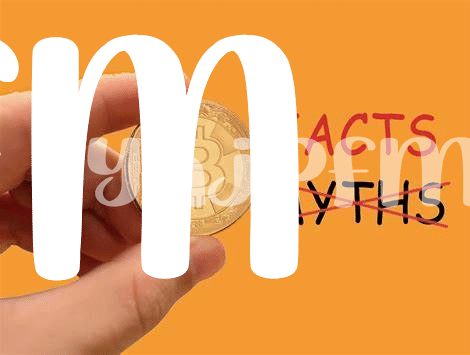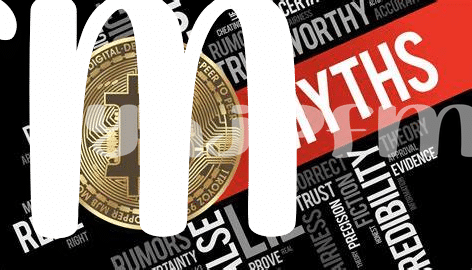🌎 Exploring the Global Impact of Bitcoin on Trade

Imagine a world where you can send money across the globe without waiting days for a bank to process it, or where you can buy a coffee with just a tap on your phone, no cash or card needed. This is becoming more and more possible thanks to Bitcoin, a digital currency that’s changing the way we think about money. Unlike traditional money, Bitcoin doesn’t rely on a central bank or government to regulate it, making transactions faster and often cheaper. But it’s not just about convenience; Bitcoin is reshaping global trade, opening doors for businesses around the world. Small entrepreneurs in remote parts of the world can now sell their products internationally without hefty banking fees eating into their profits. Moreover, in countries with unstable currencies, Bitcoin offers a more stable alternative for buying and selling goods. However, this innovation doesn’t come without challenges. The digital nature of Bitcoin means that if you’re not careful, you could lose your money to hackers. Also, because it’s relatively new, not everyone trusts it yet, which can make it harder to use for some businesses. Despite these hurdles, the potential for Bitcoin to simplify and expand global trade is enormous, signaling a significant shift in how we’ll buy and sell in the future.
| Benefits | Challenges |
|---|---|
| Faster and cheaper transactions | Security risks from hackers |
| Global commerce accessibility | Limited trust and understanding |
| Stability in unstable economies | Regulatory uncertainties |
🔍 Unraveling the Myths Around Bitcoin and Crime
Bitcoin often gets a bad rap for being a preferred tool for shady online deals, but how much truth lies behind the accusations? Let’s dive into some common misunderstandings. First off, it’s easy to assume that because Bitcoin transactions can be more private than regular bank transfers, they’re naturally the go-to for illegal trade. However, it’s crucial to note that privacy doesn’t automatically equal wrongdoing. In fact, many people choose Bitcoin for legitimate purchases because they value their financial privacy.
Another myth that needs busting is the idea that Bitcoin is completely anonymous and untraceable. While it does offer more anonymity than traditional banking systems, every Bitcoin transaction is recorded on a public ledger called the blockchain. This openness actually makes it easier for law enforcement to track down illegal activities compared to the often murky waters of cash transactions. Understanding the real capabilities of Bitcoin helps to clear its name from unwarranted accusations. To deepen your understanding about the evolving world of Bitcoin, including its anticipated software updates in 2023, feel free to explore https://wikicrypto.news/empowering-women-in-finance-bitcoins-transformative-potential.
💡 How Bitcoin Works: Simplifying the Complex

Imagine you have a digital piggy bank, but instead of being on your shelf at home, it exists on the internet. That’s a bit like how Bitcoin works, a form of money that lives online. When you want to pay someone with Bitcoin, it’s like sending an email, but instead of words, you’re sending a bit of this digital money. 📬✨ Every transaction gets recorded in a massive, public ledger called the blockchain. Think of it as a giant, shared checklist that everyone can see and confirm that yes, you did pay your friend for that cool hat. What’s clever about this checklist is that it’s super secure. It uses special puzzles called cryptography to make sure no one can cheat by spending their Bitcoin more than once. 🧩🔐 Unlike regular money, where a bank can tell you how much you have and ensure transactions are legit, Bitcoin does this all through technology, with no central authority in charge. This blend of transparency, security, and independence from traditional banks is what makes Bitcoin a unique and revolutionary way to think about money in our digital world.
🚓 Law Enforcement’s Approach to Bitcoin and Illicit Deals

When it comes to the digital neighborhood of Bitcoin, think of law enforcement as the neighborhood watch. They’ve got their eyes open, always on the lookout for suspicious movements. However, tracking illicit deals in the Bitcoin world is not like spotting a thief in a physical store. It’s more about understanding the digital footprints left behind. As Bitcoin transactions are stored on a public ledger, it’s like having a detailed map, but reading this map requires sophisticated skills. This is where the expertise of cybersecurity professionals comes into play, making sure those using Bitcoin for the wrong reasons don’t go unnoticed.
Moreover, it’s vital to understand the continuing evolution of Bitcoin, including how law enforcement keeps up with bitcoin software updates explained. These updates can significantly change the landscape, making the digital chase more complex. Security measures are always being updated to protect against misuse, ensuring that Bitcoin remains a safe environment for legitimate users. Through a combination of high-tech tools and relentless pursuit, law enforcement strives to outsmart those hiding in the shadows, ensuring that the digital currency remains a force for good rather than a tool for illicit transactions.
📊 Real Cases: the Role of Bitcoin in Illegal Transactions
When we peek behind the curtain, we discover intriguing stories where Bitcoin found its way into the shadowy corners of commerce. Take, for example, the infamous Silk Road, an online black market that operated in the dark web’s hidden corners. It became a bustling hub for all sorts of illegal transactions, primarily using Bitcoin. This was because many believed Bitcoin transactions were untraceable. However, this story, among others, underlines the fact that with enough determination, law enforcement agencies can and do follow the digital breadcrumbs left by Bitcoin transactions. These real-world events serve as a potent reminder of the complexities surrounding cryptocurrency and its potential misuse.
| Year | Case | Outcome |
|---|---|---|
| 2013 | Silk Road Shutdown | The founder arrested, showcasing Bitcoin’s traceability despite initial beliefs. |
| 2017 | WannaCry Ransomware Attack | Highlighted the use of Bitcoin in ransom demands, sparking global efforts to enhance cyber-security and cryptocurrency tracking. |
Despite these instances, it’s crucial to remember that Bitcoin itself is not illicit; rather, it’s a tool that, like any other form of money, can be used for both good and bad purposes. The challenge remains in finding a balance between enjoying the freedoms it offers and curbing its potential for illegal use.
🛡️ Protecting Yourself: Safe Practices for Using Bitcoin

In the realm of digital currencies, navigating the waters safely is paramount, especially when it involves a powerhouse like Bitcoin. One key facet to remember is the importance of safeguarding your digital wallet. Think of it as the digital equivalent of a wallet in your pocket, but instead of cash, it holds digital keys that allow you to access your Bitcoin. Ensuring these keys are secure from prying eyes is crucial. A helpful practice is to use strong, unique passwords for your wallet and consider the use of multi-factor authentication, adding an extra layer of security.
Moreover, keeping abreast of how Bitcoin operates can fortify your defenses against potential threats. For a deeper dive into understanding these safeguards, exploring topics such as bitcoin consensus mechanisms explained can offer invaluable insights. Additionally, being cautious of where and with whom you conduct transactions can significantly mitigate risks. Just as you wouldn’t hand over your wallet to a stranger on the street, exercise caution in the digital world. Remember, the allure of Bitcoin brings with it not just opportunities but responsibilities too. Safeguarding your investments by staying informed and vigilant is not just wise; it’s necessary.
